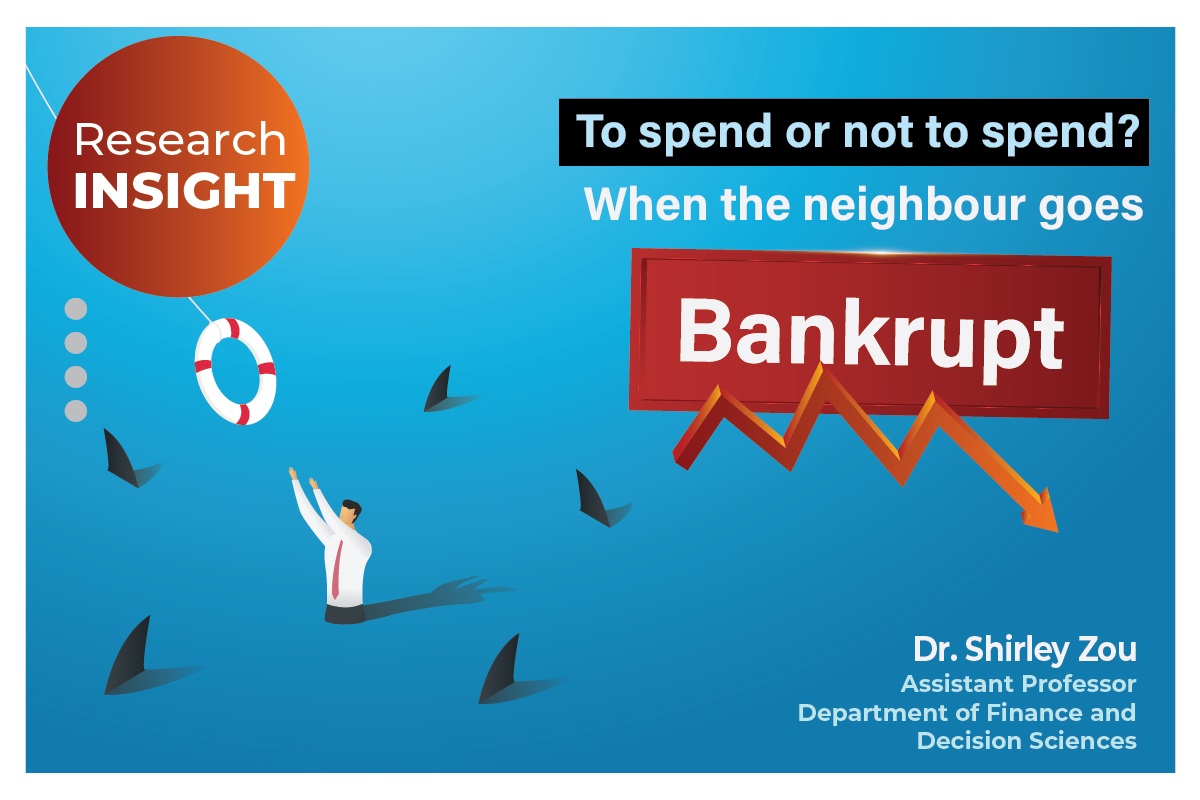School of business - research
To spend or not to spend? When the neighbour goes bankrupt


“Beware of little expenses; a small leak will sink a great ship.” Unfortunately, Benjamin Franklin’s wise words often ring true when it’s too late for consumers who, having gorged on easy credit, go bust when no longer able to pay their bills. Forced to tighten their belts, they must also live with the public stigma attached with being bankrupt. But does witnessing the drastic lifestyle changes forced on people who go bankrupt make us close our wallets as we ponder whether the same could happen to us?
Using credit and debit card data from clients of a leading Singaporean bank (nearly 30% of personal consumption in the country is purchased via credit and debit cards), a recent paper explores 1,655 bankruptcy events and the spending patterns of 17,326 consumers to assess whether people living in the same building as someone who went bankrupt also adjust their spending. The personal bankruptcy process is rather peculiar in Singapore. While bankrupted individuals become much poorer – the average bankruptcy amount was in excess of US$ 77 000 – the law also strictly restricts how much they can spend in the future while their identity is made public. Still, provided they live in a HDB flat – a form of public housing – they are allowed to keep their main residence. Thus, while the consumption expenses of bankrupted individuals drop a stupendous 78%, most still live in the same flat and continue interacting with the same people as before. All that truly change is their financial standing.
Findings show that witnessing the financial turmoil of a neighbour have a big impact on how people spend. Compared with the period of 12 to 2 months prior to the bankruptcy of a neighbour, peer consumers who live in the same building reduce the amount they spend on credit and debit cards by 3.4% a month for an entire year. Meanwhile, cash spending is generally unaffected. While government may welcome such financial restraint, the fact is that the multiplier effect of each bankruptcy is equivalent to 280% of the amount lost in bankruptcy. As Keynes said, saving money may well be a private virtue but it can also be a public vice!
Reference:
Agarwal, S., Qian, W., & Zou, X. (2021). Thy Neighbor's Misfortune: Peer Effect on Consumption. Economic Journal: Economic Policy (2009), 13(2), 1-25.